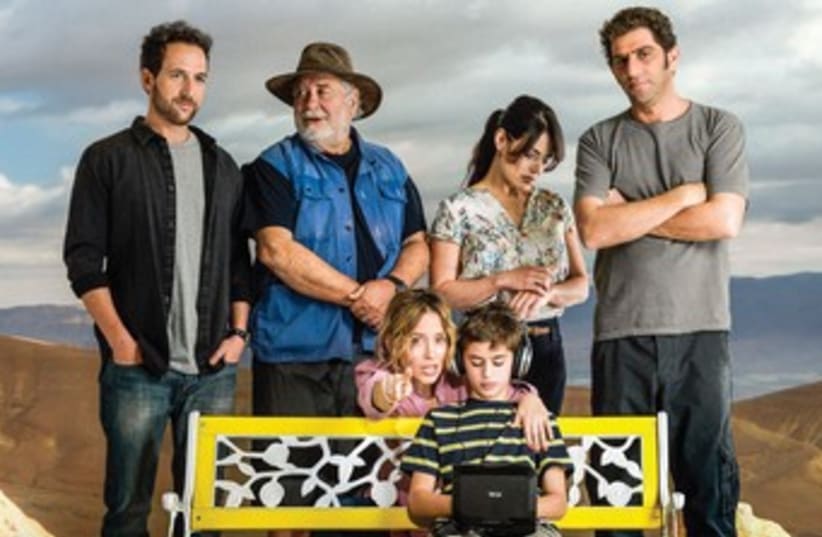One in 88 children born in the US will be diagnosed with some form of autism, according to statistics released by the respected governmental agency, the Centers for Disease Control.
By all accounts, the numbers in Israel are comparable. So it was only a matter of time before an Israeli television series decided to dramatize autism, and four years ago the series Pilpelim Zehubim (Yellow Peppers) did just that.
Produced by the Keshet network (the same people who brought you Prisoners of War, the series that was adapted for American TV and became Homeland), Yellow Peppers is returning to Channel 2 after a several-year hiatus. It just started its second season and will be broadcast on Wednesday and Thursdays nights at 10 p.m. and rerun several times during the week. It is mostly in Hebrew (there is some English dialogue) and does not have English subtitles.
As the mother of a teenage boy with autism, I can’t pretend to be objective about welcoming a show with such a premise to Israeli screens. Awareness of autism in Israel tends to lag behind the US, and it can sometimes be frustrating for parents here who are told, depending on the severity of their child’s (usually their son, since autism affects five times as many boys as girls) condition, that “There doesn't seem to be anything wrong with him; he just needs some discipline” or “Why don’t you institutionalize him?”
The fact that Yellow Peppers raised awareness of autism in Israel is wonderful, but it wouldn't have meant much if it wasn't a wonderful show. What I especially treasure about it is that it is not about autism; it is about a family, one of whose children is diagnosed with the condition, and about their entire community. The title comes from the crop produced by the moshav in the Arava where most of the characters live.
Created by Keren Margalit, the first season told the story of a young child, Omri, who is diagnosed with autism. Omri has always been different from other kids. He is an encyclopedia of musical knowledge and listens to his favorite songs obsessively. He’s clearly quite intelligent but always seems to be in his own world and rarely communicates except to talk about music.
The particularly Israeli nightmare of coming to terms with an autism diagnosis right before the holidays and being told nothing can be done for weeks was especially vivid for me, and for many other Israeli parents of autistic kids who are among the show’s most devoted viewers.
Omri’s loving parents, Ayelet (Alma Zack) and Yaniv (Yossi Marshak) are divided about how to cope with his autism. Ayelet wants to try to educate him at home and keep him in mainstream educational frameworks as much as possible, while Yaniv feels it’s best to put him in a preschool for children with autism and let the professionals care for him. They’ve also got a teenage daughter and various friends, relatives and employees to keep track of, some of whom are extremely helpful with Omri and others who are bewildered by the boy.
The series won eight awards from the Israel Academy of Television and Film, including Best Drama Series, Best Screenplay, Best Director, Best Actress (Alma Zack) Best Actor (Yossi Marshak) and Best Cinematography.
Yellow Peppers was chosen to represent Israel on International Autism Awareness Day at the UN headquarters in New York and has been shown around the world. It was purchased for development by the US company Lions Gate in 2012.
The second season picks up five years after the first left off. The parents are still in conflict over how best to raise their son but are now also considering having another baby, knowing that the child will have an approximately one in five chance of developing autism.
This season promises to be as dramatically engaging as the first one, and that’s saying something.
